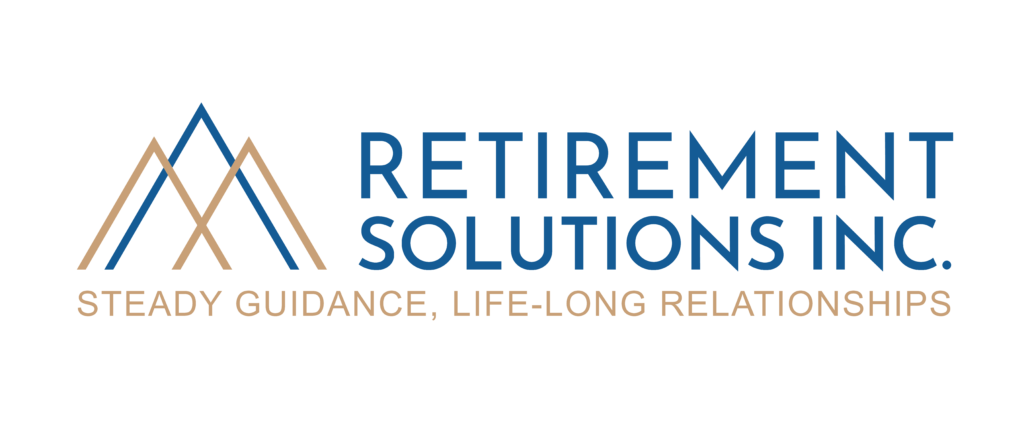5 “Hidden” Tax Opportunities to Lock In BEFORE You File
ONE
3 ways you can profit from rising inflation
As the cost of everything from groceries to gas goes up, many Americans are feeling the pressure of rising inflation. But there’s good news. You may be able to profit from rising inflation.
- Your Social Security increase
The Social Security Administration is increasing cost of living adjustment (COLA) payments by 8.7% in 2023 to move with current inflation. 3
2. Better deductions for everyone
The IRS has increased the amount of the standard deduction and expanded the tax brackets.
This means you could potentially pay the same tax rate even if you make more money this year. The income for exemption from Alternative Minimum Tax is higher and phases out at a higher income too. 4
3. Increased contribution room
The IRS has also increased the amount you can contribute to your retirement plans, as well as the income phase-out for Roth IRA’s 5
Are you ready to take advantage of these inflation-adjusted benefits?
Key questions to ask include:
- If I’m at my full retirement age, how does the increase in Social Security benefits affect my retirement plans?
- How can I take advantage of high inflation?
- How will increasing my retirement contributions help lower my 2023 taxes?
- Do I have a financial professional who can help me discover how rising inflation can help me build my wealth?
TWO
Act fast to tap into extra after-tax money (while you can)
As a high-income earner, the tax deduction for your retirement contributions is extremely valuable in helping you lower your taxes every year. But this money is fully taxable on withdrawal, so what happens when you start taking it out after retirement?
Given all the uncertainty, 2023 could be a great year for converting some of your pretax retirement money in a 401(k) or IRA into a Roth. Conversion make sense when:
- Your income drops during the year.
- You believe taxes will be higher by the time you retire.
- You want to “fill up” your expanded tax bracket because you think your taxes will be higher in the future.
If you 401(k) or similar employer retirement plan allows, you could even be eligible for a “backdoor Roth” where you add after-tax money to your pretax plan and immediately convert it to a Roth. Between your salary deferrals, employer match, catch-up contributions, and after-tax money, you’re allowed to contribute up to $66,000. 6
Key questions to ask include:
- Am I in a good position to convert some pretax money to after-tax money this year?
- How close am I to “filling up” my current tax bracket, and do I have room for conversions?
- How much tax savings disappear if I don’t take advantage of them before I file?
- Does my employer retirement plan allow me to make after-tax contributions after I max out my salary deferrals?
- Is there a financial professional I trust – who’s knowledgeable about Roth’s – to advise me?
Three
Discover buried tax savings by bundling you deductions
It’s tax season outside. Tax deductions that wealthy people have relied on for years such as state and local tax deductions, including mortgage interest and charitable deductions, were seriously cut back through the TCJA of 2017.
Depending on your financial and portfolio situation, it might make sense to accelerate your mortgage payments. You might even consider paying off more of your mortgage and retiring the debt now that the tax deduction for mortgage interest is capped.
Now that the standard deduction is higher for 2023 ($27,700 if you’re married and filing jointly), you’ll need to be thoughtful about deductions that you can bundle to be able to itemize, like: 4
- Charitable deductions: Pack several years of donations together and make sure your get receipts.
- Prepaid property taxes: As long as your local taxing authority bills your 2024 property taxes before December 31, 2023, and you pay them before the end of 2023, you can claim the deduction in 2023.
- Unreimbursed medical expenses: Consider accelerating or grouping medical procedures to help get over the 7.5% AGI floor in the same tax year.
Not only does this have to be done before your file, you need to take care of it before December 31st.
Key questions to ask include:
- Do I have expenses like property taxes and medical costs that I can bundle into this year along with my charitable contributions?
- Should I consider paying down my mortgage instead of adding more money to my taxable brokerage account?
- What deductions am I potentially missing out on?
- What hidden tax opportunities are jeopardized if I don’t get them before I file?
- Is there a financial professional I trust to help me make sense of my deductions?
Four
Amplify your tax savings with strategic investment decisions
Some types of assets perform better in one type of account over another. Investing your assets with purpose can potentially help you lower your tax bill.
Here are some examples of what this tax-saving strategy can look like:
- If you have an employer retirement plan: If your plan allows, why not max out after-tax contributions?
- If you’re self-employed or own your own business, make sure you have the right retirement plan. 401(k), SEP. and SIMPLE IRAs have different tax-deductible options.
- 529 college savings plans: They’re not just for college kids, and you can be the beneficiary and the owner to capture tax-free withdrawals.
- If you have a high deducible health care plan, you can leverage HSAs to cover medical expenses and invest for the future.
It’s critical to extract as many tax deferral opportunities as possible from your investments before you file AND before lawmaker’s eliminate the tax advantages of each strategy.
Key questions to ask include:
- Are my investments in the right accounts to maximize tax savings?
- Am I able to add more after-tax money to my employer-sponsored retirement plan?
- If I own my own business, is my retirement plan suited to my needs?
- Which tax opportunities will I lose if I don’t act before I file?
- Do I have access to a financial professional who can help guide me through these investment strategies before I file my taxes?
Five
Consider these advanced moves BEFORE you file
These tips are advanced and complex techniques that could help you wring every opportunity out of this tax year, but you need to be careful and coordinate your tax strategies in the context of your overall financial plan.
Here are some examples of what this tax-saving strategy can look like:
- Take some of your capital gains off the table: If your portfolio strategy supports it, you may want to consider selling assets that have gained value to lock in your gains.
- Realize capital losses: If you have assets in your portfolio that no longer fit your goals, selling them and realizing the losses will allow you to offset some or all of your gains. Details matter a lot here, so be sure to get advice on marching short- and long-term gains and losses.
- Convert Traditional retirement money to Roth: Roth conversions reduce the amount of Traditional money that you’re forced to take RMDs on, plus the money comes out tax-free on withdrawal as long as you play by the rules.
- Characterize income as capital gains: Take advantage of current low capital gains tax rates, especially with things like employer stock options.
These hidden tax-saving opportunities can help you build wealth, but be conscientious. You could create an explosive financial disaster if they aren’t carried out with awareness of the parameters and laws surrounding them. I strongly recommend you seek the help of a financial professional before jumping in.
Key questions to ask include:
- Should I convert some traditional pre-tax money into a Roth, or take capital gains from my taxable account?
- Are there any opportunities to shift income from ordinary to capital gains?
- Will I lose out on capital gains shifting if I don’t take care of it before I file?
- Do I have a financial professional who will make sure I’m extracting as much value from my current opportunities as possible?
Sources:
1 – https://www.usinflationcalculator.com/inflation/current-inflation-rates/
2 – https://www.taxpolicycenter.org/briefing-book/how-did-tax-cuts-andjobs-act-change-personal-taxes
4 – https://www.irs/gov/newsroom/irs-provides-tax-inflation-adjustments-for-tax-year-2023/
5 – https://www.irs.gov/newsroom/401k-limit-increase-to-22500-for-2023-ira-limit-rises-to-6500
6 – https://www.irs.gov/pub/irs-drop/n-22-55.pdf
Risk Disclosure: Investing involves risk including the potential loss of principal. No investment strategy can guarantee a profit or protect against loss in periods of declining values. Past performance does not guarantee future results.
This material is for information purposes only and is not intended as an offer or solicitation with respect to the purchase or sale of any security. The content is developed from sources believed to be providing accurate information; no warranty, expressed or implied, is made regarding accuracy, adequacy, completeness, legality, reliability, or usefulness of any information. Consult your financial professional before making any investment decision. For illustrative use only.
Securities and investment advisory services offered through SagePoint Financial, Inc. (SPF) member FINRA/SIPC. Additional advisory services offered through The AmeriFlex® Group. SPF is separately owned and other entities




